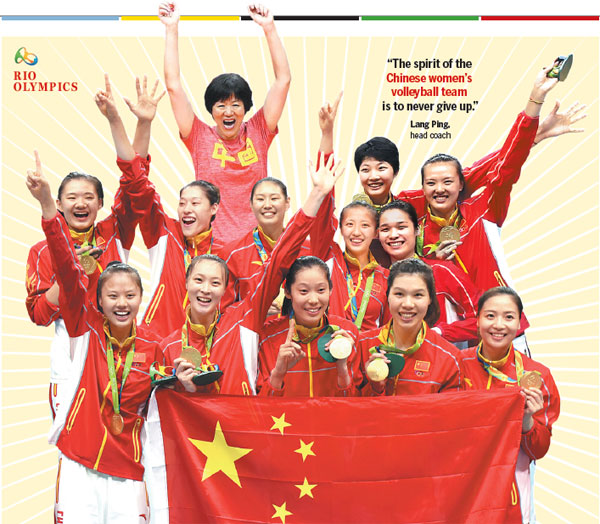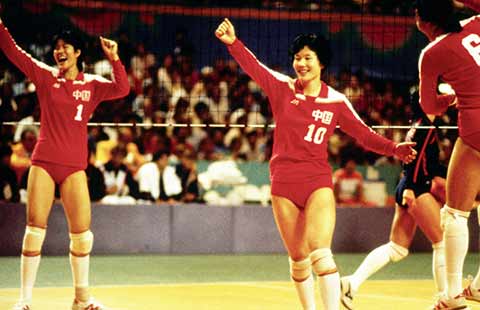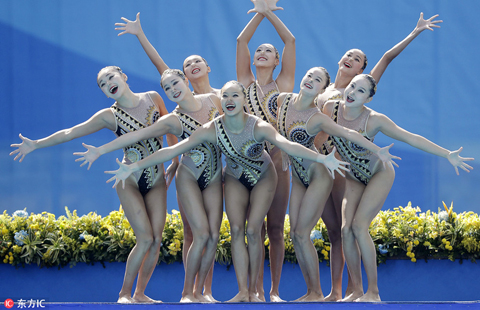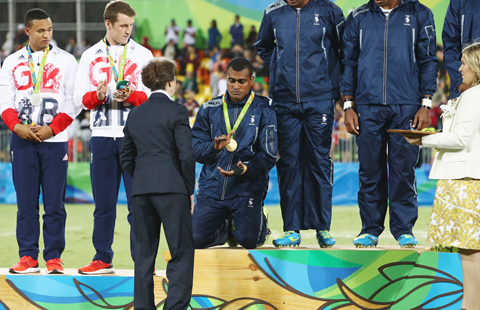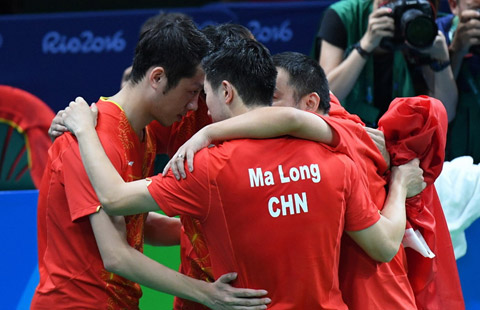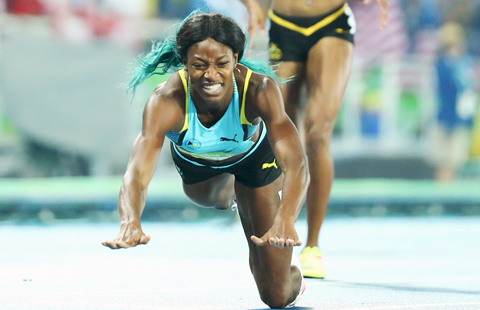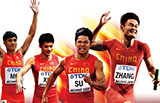The winning spirit
By Sun Xiaochen in Rio De Janeiro (China Daily) Updated: 2016-08-22 07:44Nation's athletes urged to learn from women's volleyball team after gold run in Rio
Of all the gold medals China has collected at the 2016 Rio Olympics, the shiniest could turn out to be the one won by its women's volleyball team.
After a few wobbles in the early stages, the team clinched victory against Serbia in the final on Sunday morning Beijing time - a result that defied the odds.
Around the country, people were glued to their TV screens, with China Central Television's sports channel, CCTV-5, receiving its highest-ever ratings, according to local media.
And no sooner had the final ball crashed into the floor that WeChat, the instant-messaging app, was flooded with posts celebrating the team's "never-say-die spirit" as they claimed China's third Olympic gold in the event in 32 years.
The nation won its first gold in women's volleyball at Los Angeles 1984 and its second at Athens 2004.
In Rio de Janeiro's Maracanazinho Arena, the team's 3-1 defeat of Serbia was cheered by hundreds of Chinese fans waving red flags and singing.
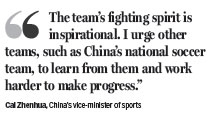
"It was a good motivator to play in front of such a supportive crowd. It made me feel like we were playing on our home court," said team captain Hui Ruoqi, 25, who smashed a direct kill to close out the final at the first match point.
"We could feel the energy. We also wanted to show the world that we've inherited the strong fighting spirit of the senior women's team, and we will pass it on to the next generation."
Led by star player Lang Ping, now the head coach, China's women's volleyball team won five consecutive world titles between 1981 and 1986 - two World Cups, two world championships and the 1984 Olympics gold.
The never-say-die spirit that carried the squad through rigorous training greatly inspired the nation in the '80s.
"The spirit of the Chinese women's volleyball team is to never give up. My job as the coach is to guide this young team to carry on this spirit," said Lang, the first person to win Olympic gold in volleyball as a player and coach.
With the retirement of key players and frequent coaching changes, the team saw a slump in results after 2008 until Lang returned for a second spell at the helm in 2013 (she was also head coach from 1995 to 1998).
However, a series of injures to key players, including Hui and setter Wei Qiuyue, presented a challenge to steer the team back on track. Wei underwent surgery on both knees in late 2014, while Hui had an operation for a heart condition in August last year.
"I'm really proud of my players," Lang said, adding that after Sunday's final she told Hui to "stay calm ... because I was afraid the excitement may be too much for her heart".
With the team back on top, fans and senior sports figures are calling for more Chinese athletes to show the same spirit.
"The spirit has not gone, but it exists in only a limited number of teams today," said Wei Jizhong, honorary life president of International Volleyball Federation. "The volleyball team embodies that spirit."
Cai Zhenhua, China's vice-minister of sports and deputy director of the Olympic delegation, added: "The team's fighting spirit is inspirational. I urge other teams, such as China's national soccer team, to learn from them and work harder to make progress."
On Sina Weibo, the Twitter-like service, the hashtag #volleyball dream team# was viewed 270 million times and commented on 276,000 times within five hours of the team's victory.
"The spirit did not come after they got the gold, it has always been there," said Chen Tao, a sports fan from Nanning, capital of the Guangxi Zhuang autonomous region.
sunxiaochen@chinadaily.com.cn
